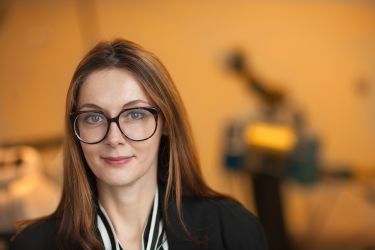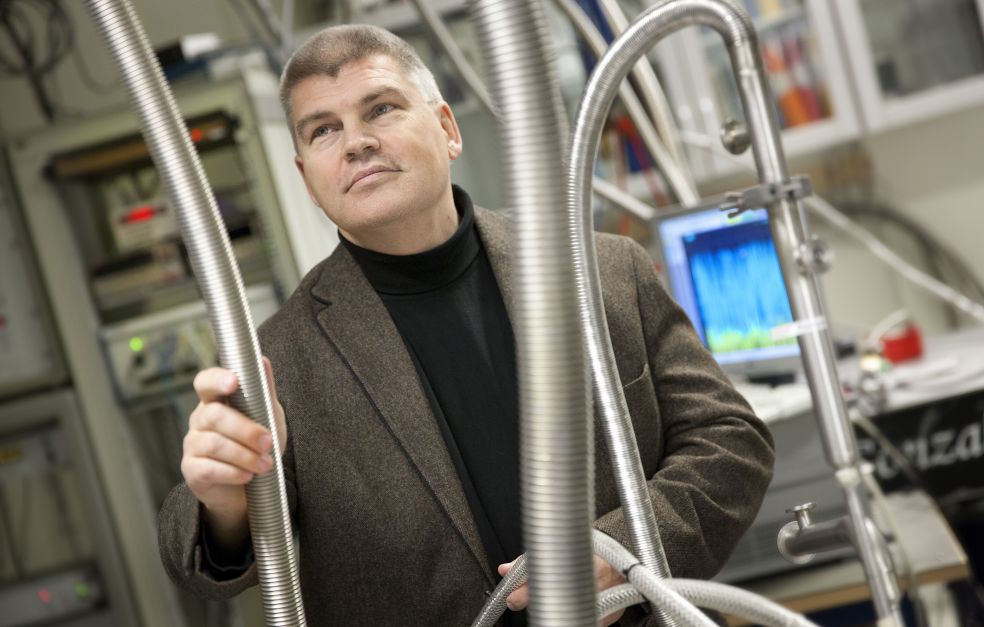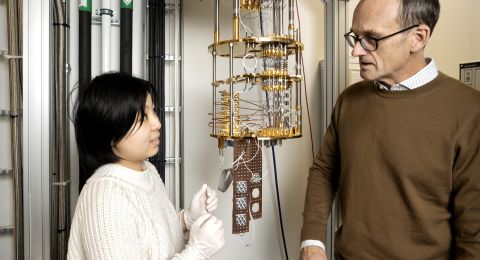
Strategic Initiatives: Jubilee donation
Wallenberg AI, Autonomous Systems and Software Program, WASP
Hosted by:
Linköping University
Participating universities:
KTH Royal institute of Technology
Chalmers University of Technology
Lund University
Umeå University
Grant:
Additional funding of SEK 1 billion
Totalling 4,2 billion since 2019
The Wallenberg Centre for Quantum Technology, WACQT
Hosted by:
Chalmers University of Technology
Participating universities:
KTH Royal institute of Technology
Lund University
Grant:
SEK 600 million
Totalling 1 billion since 2019
With the help of advances in quantum technology, we will be able to create ultrafast quantum computers capable of solving problems that are far beyond contemporary computers, while AI will provide platforms for developing computers that can make medical diagnoses better than physicians, autonomous traffic systems, self-learning computers that outsmart human specialists, and robots that are capable not only of performing simple tasks, but also solving complex problems. You might think that all of this lies far in the future, but the future is already here.
For several decades, AI research made only incremental progress. Interest in the science had weakened and funds had withered to the point that there was talk of an “AI winter”. However, when a breakthrough was made in “deep learning” around 2012, AI development took off, but this has been driven with little Swedish influence.
Quantum technology started to emerge in the mid-1990s, and in recent years it has attracted increasing attention. Several big-league companies like Google and IBM are now focusing on designing quantum computers. In Sweden, we have several clusters of prominent researchers in the field and they are now receiving substantial funding to accelerate the development of quantum technology in the country.
SEK 1.6 billion in long-term funding
Deep learning is an offshoot of machine learning inspired by current knowledge about the brain’s function and how it performs calculations and generalizes. China and the USA have made considerable investments in the field and are spearheading development efforts. A lot of deep learning research is also being conducted by companies like Google, IBM and Facebook. Citation-based statistics indicate that Swedish researchers have fallen behind, except in visualization technology and robotics, areas in which Sweden has been a member of the international elite for a long time.
“We realized this when we were drawing up the long-term grant strategy for the Knut and Alice Wallenberg Foundation. If Sweden was going to remain a top nation, we had to be at the cutting edge of these two fields. This is why we are now granting a total of SEK 1.6 billion to build up basic research in AI and quantum technology over the next ten years,” says Peter Wallenberg Jr, Chairman of the Foundation.
Computers that understand and explain their decisions
The AI field is broad and defined in diverse ways. A branch that has generated almost explosive development recently is categorized as computer-driven AI, which has developed from machine learning algorithms to more advanced implementations like deep learning systems.
Deep learning is used to collect and analyze enormous amounts of data for reinforcement learning, in which a system (computer) learns by itself and expands its knowledge. A much-discussed example is the defeat of the human world champion of the Asian strategy game “Go”, by an intelligent machine using self-learned innovative techniques and tactics.
Another advanced type is eXplainable AI, in which the system can also explain its answers. This capability will be extremely important for getting people to trust systems sufficiently to accept that they will correctly interpret situations and reach safe decisions in traffic responses or other crucial automated functions.
The Knut and Alice Wallenberg Foundation’s AI research funding initiative will be carried out within the framework of the Wallenberg AI, Autonomous Systems and Software Program (WASP), launched in 2015. The new initiative will add SEK 1 billion in funding to the approximately SEK 1.3 billion that the Foundation has already granted. (Totalling 4,2 billion since 2019 )
The AI initiative will focus on computer-driven AI and the new mathematics needed in the field. But it will also cover other areas, such as robotics and computer visualization technology, which are already being researched within WASP.
“Sweden must remain competitive in AI research and education. The USA, Canada and UK have made major investments in AI and we must follow their example. AI should be a strategic area for all universities in Sweden,” says Danica Kragic, Professor at the KTH Royal Institute of Technology , who will lead the research within the deep learning and machine learning part of the center.
The mathematics initiative focused on AI will be led by Professor Johan Håstad at KTH.
The potential of AI and quantum technology is bewildering and will lead to other changes in society that we need to manage wisely.
“The development of technology can bring many benefits but also create new challenges. The Wallenberg Foundations will therefore fund studies within the humanities and social science fields of how the introduction of these modern technologies will impact society,” says Marcus Wallenberg, Vice Chairman of the Knut and Alice Wallenberg Foundation.
A Swedish quantum computer
Quantum physics is just as fascinating as AI.
The science was developed in the beginning of the 1900s. Quantum theory leads to unexpected predictions, some of which are contrary to common sense. For example, an electron can travel two paths simultaneously, and only “choose” one when “asked” which path it took.
Quantum physics has had a tremendous impact on society through inventions like the transistor and laser, which in turn pioneered contemporary information technology. Developments in the field have helped produce today’s computers, the Internet and advanced measurement instruments.
Major investments are being made in quantum technology all over the world. In the beginning of 2019, the EU will launch a flagship research program that will be backed by EUR 1 billion in funding. Despite the considerable investments that are being made, most people agree that it will take a while before the ultimate dream is fulfilled – development of the first quantum computer. However, other applications of quantum technology will materialize much sooner.
Through the grants by the Foundation’s, the Wallenberg Center for Quantum Technology, WACQT, will be established. (Grants totalling 1 billion from since 2019)
“The initiative will allow us to build broad competence in quantum technology in Sweden, but also give us the opportunity to develop a Swedish quantum computer,” says Per Delsing, Professor at the Chalmers University of Technology and Program Director at the Center.
The center’s research will focus on: quantum computers, quantum sensors, quantum simulators and quantum communications. With quantum sensors, for example, it is possible to detect differences in density that affect gravitation, and cavities like pipes or tunnels in the ground that are not marked on maps. Encryption to protect confidential or secret information is an important part of quantum communications.
Advantages of quantum technology
Quantum computers are expected to be much faster than contemporary computers. Today, the leading candidates for key components of the first functioning quantum computer are ion traps and superconducting circuits.
In the fall of 2017, IBM introduced the first superconducting 16-qubit processor, while Google is developing a 49-qubit processor. Researchers at WACQT aim to build a 100-qubit processor with superconducting circuits.
A quantum computer or quantum simulator are suited for solving problems in which many alternative possibilities must be considered, like optimization problems and calculations of the properties of large molecules. Solutions to such problems will improve understanding of biological molecules and new medicines in the long run. Protein folding presents other problems, with enormous practical implications for numerous medical and biological applications, which could be quickly resolved by quantum computers, but would be very difficult to tackle using a conventional computer.
“In the last five years dramatic progress has been achieved in quantum simulations and quantum calculations. In these fields, preparations are being made to scale up to the level required to demonstrate what is known as a ‘quantum advantage’. This is when a quantum processor can perform a specific task that is beyond the capability of the most powerful classic super computer,” says Per Delsing.
Research schools and international recruitment
The quantum and AI technology initiative will focus primarily on developing long-term competence in these areas by establishing large research schools and recruiting young researchers from the rest of the world to Sweden. Funding will be provided to recruit up to 200 PhD students, and up to 40 new research groups on junior level to Sweden.
“By focusing on building long-term competence and attracting the best young researchers, we can put Sweden on the AI and quantum technology map. There is no shortcut to accomplishing this. Basic research initiatives will secure the infrastructure that other players and companies will need to develop applications and innovative technologies over time,” says Peter Wallenberg Jr.
More about Wallenberg Center for Quantum Technology, WACQT from Chalmers






